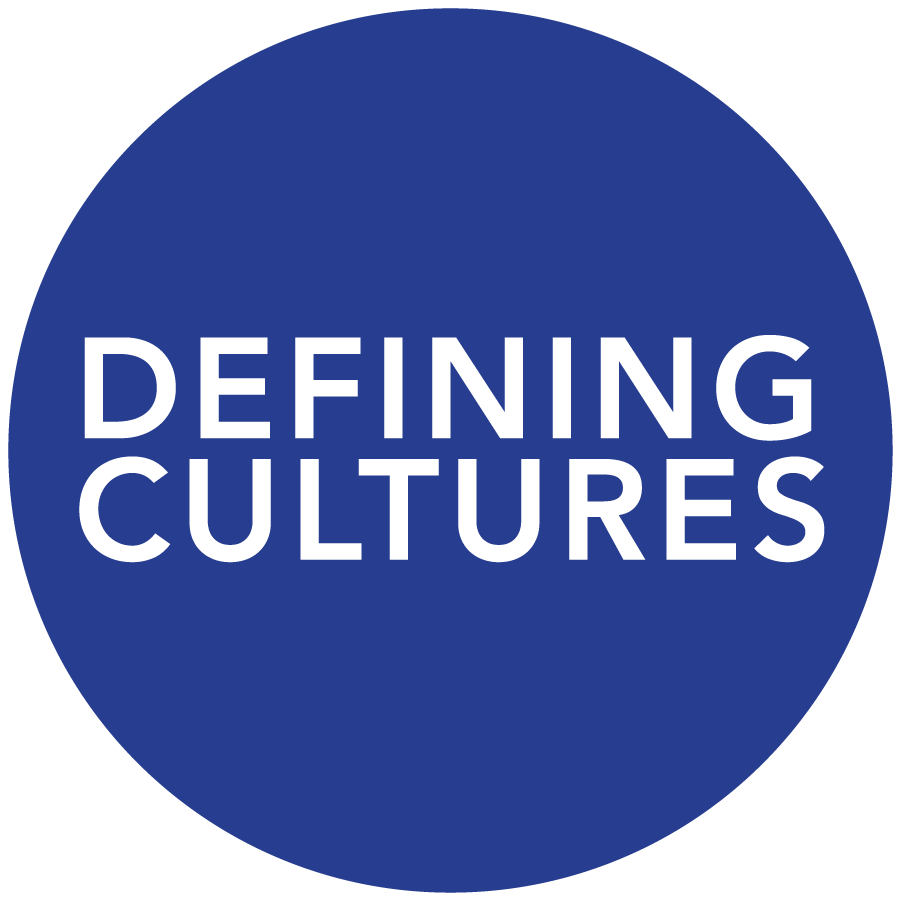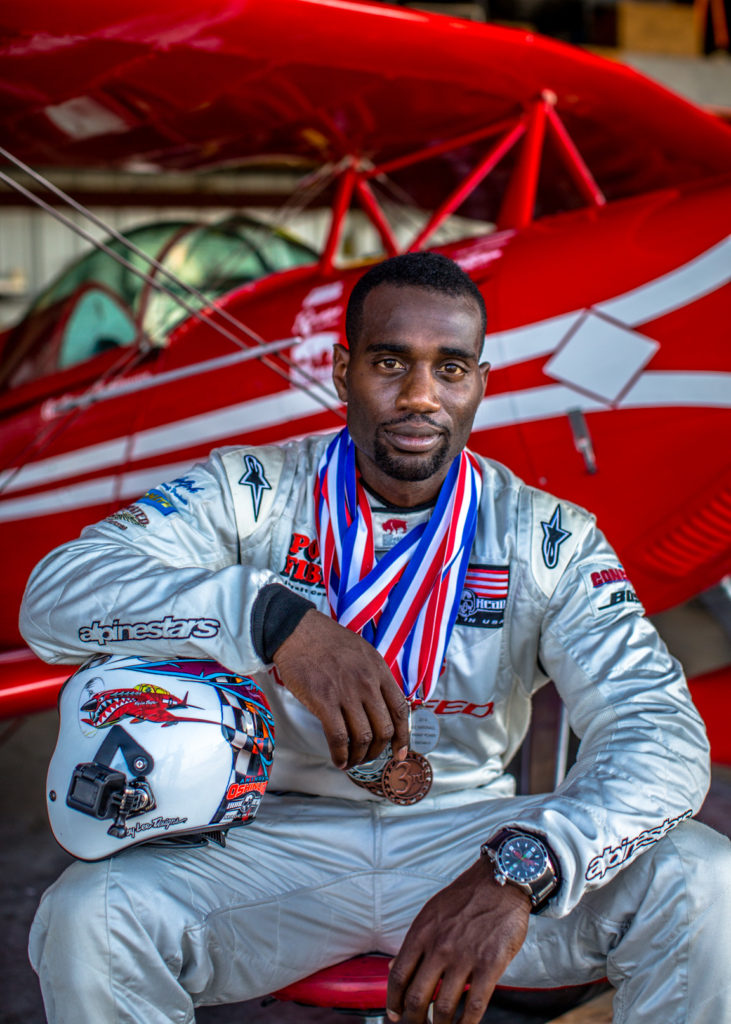
When it comes to sports, I’m sure we all know many athletes that would be a perfect fit for Defining Cultures. Of course my goal is to get all of them on here, BUT I wanted to start with modern day history makers who are claiming “First” within their respective sport.
Anthony Oshinuga is one of them! As the first African-American Air Race Pilot, his journey is full of moments where it’s honestly hard to believe that he even sleeps.
Read Anthony's bio on Defining Cultures
For PART 1 of my interview with Anthony, you will see how his ambition and upbringing has played a vital role towards his success. From growing up in a traditional Nigerian household, to experiencing colorism, and entering a sport where he fails to see people that look like him, his journey is set to be in our history books.
• “Before high school, I was insecure because I was the dark, chocolate kid in class...My lips and nose were bigger than the other kids.” •
- Anthony on his emotions/physical features as a child
Tell me about your family.
My mother and father are both Nigerian. True to the country. They were born in Lagos: my father Ajabu, and mother, Victoria Island. They came to America in their mid-20s in the early/mid 1980s. Then I came about. I was born in Austin, Texas and I’m the oldest of four siblings. My brother was born a year after me, also in Austin.
When I was 5 years old, my parents moved to Baton Rouge, Louisiana and that’s where my dad continued his education. He was already educated in Nigeria, but you know…you come to America, they want you to have the American education.
In Louisiana is where 2 of my other siblings were born. We lived there for about 4 to 5 years and then moved to California. And that’s where my last sibling was born. We eventually settled in a city called Victorville…that’s where I went to 6th grade, middle school, high school and college.
What was the ethnic makeup of Victorville?
There were a lot of Mexicans, Whites, and a sprinkle of Black people. As far as the African community, there were probably 2 or 3 families in the whole city that were African immigrants or first-generation.
Was this the similar makeup of your schools?
Yea. Out here in the West Coast, it’s rare you will see an all Black school.
How was your home life compared to the “outside” world during your teenage years?
It was ok. There were definitely some highlights. [laughter]
Our parents were very authoritative, disciplinary action folks. For every action, there’s an equal or opposite reaction. So if you do something you’re not supposed to do, you will see the repercussions…if you do something really good…you definitely get rewarded.
My parents did a wonderful job rooting us culturally. Come home: we’re speaking and learning the language, eating the staples: jollof rice, plantain, goat meat, fufu…we’re in the safe zone.
There was definitely a disconnect. Once we stepped foot out of the house, it was this reality of, ‘what’s going to happen today?’ I feel like, a lot of the people we met in school didn’t know who they were or where they came from, so I think they were struggling just as bad. I wasn’t born in Africa, but I’m lucky that my parents were born in Africa and were able to teach us our background...and give us historical facts. These conversations, I couldn’t have with my high school mates, because they didn’t know where they came from.
Were you fully accepted in school or did you feel like an outsider?
Before high school, I was insecure because I was the dark, chocolate kid in class. My gums were black. My lips and nose were bigger than the other kids. My physical features were more masculine…I had muscles already and was only in the 8th grade. I was stronger and doing things athletically that shouldn’t be done at my age.
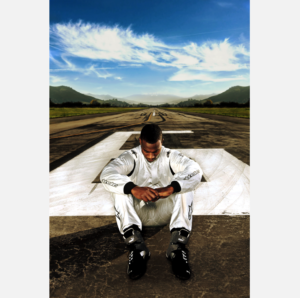
I didn’t know at the time how blessed I was until I got mentors in high school, who would say: 'Damn dude you have potential. We need to get you on the right path!' They told me about [basketball] tryouts. And after day number 4 of tryouts, they put me in varsity. So I played varsity all four years of high school.
Did you talk to your parents about what you were going through?
No, I didn’t. My mom and dad didn’t understand because where they come from, everybody is black. Nobody is going to talk about how big your lips are or call you ‘blackie’ or anything like that because everybody is the same like you and I in terms of physical attributes.
Back to basketball…your parents allowed you to play basketball all through high school??!!
My parents could not care less about sports. They were academically motivated. So the rule in our household was, if I wanted to continue to play on the team, I would have to bring home straight A's. That was the rule.com! No ‘ands,’ ‘ifs,’ or ‘buts.’ If you want to have fun, and go play, you bring home those grades, and you’d be rewarded. That’s what it was.
Did you continue to play basketball in college?
I entered college with a 4.0 GPA and got my ass handed to me! I was waking up at 5 in the morning for practice, going to class, weight room, then back to class. It was killing me. It was difficult for me to maintain my grades at the level that I was used to. So by my 3rd year, I stopped playing basketball and focused on my mechanical engineering program [at the University of California, Riverside].
What made you choose engineering?
…My dad’s a chemical engineer, so we had that background. Growing up, he bought a whiteboard. So around the age of 10, he was teaching us algebra. We mathematically ‘had it.’…I liked putting things together.
And in high school, my dad sent my brother and I to Pennsylvania State University for a two-week STEM program where we learned each and every discipline of engineering at the time: electrical, mechanical, chemical, environmental, electronics, biomedical…all of that. So by senior year I thought, ‘Ok, I’m good at basketball, but I need to get a degree. So I’ll go ahead and do engineering. Why not?’ I had been in it all of my life.
You mentioned 'colorism' a few minutes back. When did you become confident in being in your own skin?
I eventually got over the hurdle going into senior year in high school. And especially in college, because I was introduced to more well rounded individuals, who were emotionally developed. People [in college] would comment, not on the darkness of my skin, but on the beauty of the skin. I didn’t have to put my guard up…
On campus, I was a part of an African-American Association program. I would wear my African attire to events and people on campus would approach me to ask: ‘what is that?’ I would sit there and educate them: ‘this is handmade’ ‘it comes from here…’ the whole nine.
Tell me about life after college and how did you even get into aviation.
…I worked for a pharmaceutical company in medical devices that engineered stents, which are deployed in people’s arteries so that the blood can flow through. I got hired in 2006 and did that for a few years.
I started taking pilot lessons here and there during my junior year of college because I wasn’t playing basketball anymore. So I hung around the airport a lot and talked to people. I started officially training in 2007.
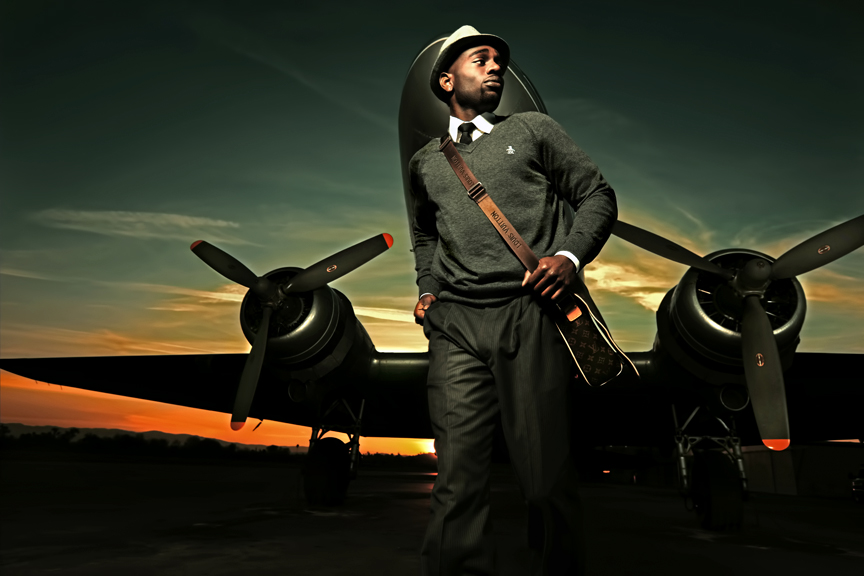
• “I had to make some sacrifices in life…I started to cut down on everything!” •
- Anthony on how he was able to launch AirOshi and purchase his plane within the same year
You were working full-time and taking lessons?
Yes. I couldn’t leave the gig until the business took off. I was going to work like: ‘this is not feeding my soul, my passion, my essence.’ Then I asked myself: ‘what am I doing here?’ ‘Why am I here?’ It started festering and started building and that’s when I said, ‘it’s time!’
So while I was training to get my licenses for aviation, I also was researching what I needed to do to create a business within the aviation industry…And then I thought about the two biggest money makers – one was alcohol…And that’s when it clicked! ‘I can partner with the wineries and create an adventure via the aviation – I can do it in the airplane where I’m still fulfilling my purpose in life and enjoying aviation…That’s when AirOshi came about [an aerial-scenic touring company in Temecula, right by San Diego]. I’m at work thinking about this. [laughter]
So when did you obtain your pilot certificate? And how did you go from wanting to start a touring business to aerobatics?
I got my license in 2010 and met this guy who was an aerobatic competitor. He was pushing out his [2-seater] aerobatic plane, and says ‘hey, I see you at the airport a lot, you wanna go for a flight?’ and I said: ‘yes, of course!’ Before I knew it, he straps on a parachute on my back, we’re in the airplane doing rolls and loops. It was crazy! In my head I was like ‘I wasn’t doing real flying before. This is real flying! I gotta do this!’ [laughter]. The air races also started coming on TV. So I was like, ‘Dude, that was tight! I want to do that too!’
He became my mentor in aviation…took me through my courses; taught me how to land but most importantly how to stay alive. I have him to thank for instilling in me the fundamental part of my skills and where it is today.
So when did you officially launch AirOshi and when did you purchase your Cessna (4 passenger plane)?
2013.
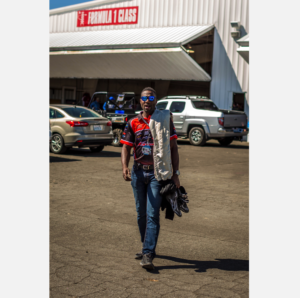
Wait a minute…you bought the plane the same year you launched the business?
Mannn, I’m telling you! Africans don’t play around. When we trying to get some stuff done, there’s nothing stopping us. [laughter] So you’re probably thinking, ‘how the hell did he buy a freakin Cessna? Those things are like one hundred thousand dollars.’
Yea, pretty much! LOL
I had to make some sacrifices in life…I started to cut down on everything! I said to myself: I don’t need cable. I can watch TV on the Internet…My phone bill, I don’t need all this extra stuff – so my phone bill went from $150 to $70 a month. I started cutting down on every aspect of my life. My friend said; ‘Hey Anthony, you wanna go out to dinner.” [I’d say:] sorry, I’m on a program right now. Unless you’re buying, I ain’t going.” So I got free dinner most of the time. [laughter]
I bought a house in 2008 and it grew in equity. When 2012 ended, I looked at my financial dividends. What’s my money looking like? And then I went shopping for an airplane, and what the difference was, I took equity out of my house…a couple hundred dollars extra for mortgage and you give me all this money? Done! So with a combination of doing that from 2012-2013, that’s how I got my first airplane.
Read PART 2
- Images courtesy of Anthony Oshinuga.
- This interview has been edited for brevity and clarity.
